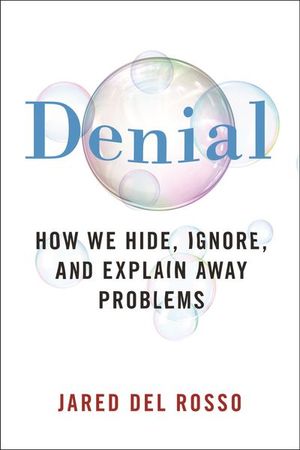Denial
Published by NYU Press
From climate change to fake news, an entertaining and enlightening look at the widespread phenomenon of denial in our society
Donald Trump won the election; climate change isn’t real; America is a color-blind country. Despite overwhelming evidence to the contrary, why do so many of us refuse to admit the truth? In fact, as Jared Del Rosso argues in this thought-provoking book, denial is so much a part of our lives that we deny its existence all the time, even when this works against our best interest, even when we are being choked by its very fumes.
Denial is one of those rare books that will change the way you think. In a highly readable style that draws on examples from current events, politics, and pop culture, Del Rosso teases out the complexities of denial, from “not noticing” that someone has food stuck in their teeth, to companies that engage in widespread fraud, like Enron and Wells Fargo, to the much larger-scale denials of climate change or systemic racism. Drawing on classic studies in the social sciences and his own research of the denial of torture, Del Rosso builds a fascinating typology of the forms and meanings of denial, exploring the behavior of those who refuse to acknowledge their actions, and what it means to live in a society where such lying, fraud, and corruption is commonplace.
In wide-ranging examples, Del Rosso explores the causes, strategies, and consequences of denial. When scandal hits and accusations of misconduct are made, he argues that individuals like Harvey Weinstein or Brett Kavanaugh, or organizations like the Catholic Church or Penn State, go through a series of moves to try to avoid accountability. Del Rosso focuses on the individuals involved but also asks: how could so many people not know what their priests, or their coaches, or their coworkers were doing? Del Rosso effectively argues that recognizing what denial looks like is the crucial first step in mitigating its effects on us and society as a whole.
At a time when powerful people and institutions are increasingly being held accountable for their actions, Denial provides an undeniable reality check.
BUY NOW FROM
COMMUNITY REVIEWS

